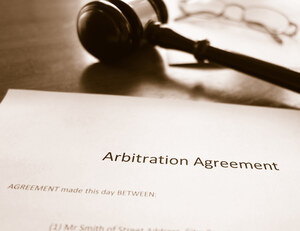 The Ninth Circuit’s decision in Chamber of Commerce v. Bonta follows a series of recent U.S. Supreme Court precedents, including last year’s Viking River Cruises, Inc. v. Moriana. The result in Chamber of Commerce has left employee advocates evaluating their options. It may also invite legal challenges to similar employee protections in Maryland, Illinois, Vermont, New Jersey, New York, and Washington.
The Ninth Circuit’s decision in Chamber of Commerce v. Bonta follows a series of recent U.S. Supreme Court precedents, including last year’s Viking River Cruises, Inc. v. Moriana. The result in Chamber of Commerce has left employee advocates evaluating their options. It may also invite legal challenges to similar employee protections in Maryland, Illinois, Vermont, New Jersey, New York, and Washington.Chamber of Commerce v. Bonta
AB51 was somewhat oddly designed in the first place. The law prohibited an employer or prospective employer from requiring any applicant for employment or employee to waive any right or procedure guaranteed under the California Fair Employment and Housing Act (FEHA) or other employment law as a condition of employment, continued employment, or receipt of an employment-related benefit. The law also prohibited employers from threatening, retaliating, discriminating against, or terminating any employee for refusing to consent to such a waiver.
It does not, however, invalidate an arbitration agreement that is otherwise enforceable under the FAA. It just makes it a misdemeanor for an employer to seek such an agreement. The California legislature took this peculiar approach to avoid conflict with Supreme Court precedent, which holds that a state rule that discriminates against arbitration is preempted by the FAA.
In an earlier stage of this litigation, a dissenting opinion commented that it would be like making it unlawful for a drug dealer to attempt to sell drugs, but lawful if the drug dealer had succeeded in the transaction. The dissenter, this time writing the Ninth Circuit’s majority opinion, cited Kindred Nursing v. Clark to hold that “a state rule interferes with arbitration if it discriminates against arbitration on its face or if it ‘covertly accomplishes the same objective by disfavoring contracts that have the defining features of arbitration agreements.’” In other words, the California legislature could not, by means of logical hairsplitting, accomplish what it could not do overtly. The whole scheme was too clever by half, according to the Ninth Circuit.
Tortured procedural history, thanks to Viking River Cruises
In 2021, at its first brush with Chamber of Commerce, a Ninth Circuit panel held that the FAA did not completely preempt AB51. Thereafter, the U.S. Chamber of Commerce filed a petition for rehearing en banc. The Ninth Circuit deferred rehearing the case pending the U.S. Supreme Court’s decision in Viking River Cruises. That decision was handed down in June 2022. On August 22, 2022, the Ninth Circuit withdrew its initial 2021 Chamber of Commerce decision and granted a completely new rehearing. In February, it reversed its own earlier decision, thus effectively nullifying the statute. Advocates for workers rights can hardly be blamed for feeling the whiplash.
In Viking River Cruises, the U.S. Supreme Court held that the FAA preempts California’s Private Attorneys General Act (PAGA). The decision reversed standing precedent under California labor law, which had permitted class action labor lawsuits against employers even when workers had agreed to resolve employment disputes through individual arbitration. Since that 2022 decision, the existence of a PAGA claim has not been sufficient to preserve a worker’s right to bring a class action lawsuit. The decision was seen as a major blow to employees’ rights. Now, Chamber of Commerce seems to have dealt another one.
What now?
The State of California has several options. It may request a rehearing from the Ninth Circuit or appeal to the U.S. Supreme Court. The Ninth Circuit has already changed its mind once on this case, and it is possible that it may do so again. A petition for certiorari to the Supreme Court, even if granted, may not yield the desired result, given the Court’s recent history of pro-arbitration, pro-employer decisions.
READ MORE CALIFORNIA LABOR LAW LEGAL NEWS
Finally, there is the example of a 2022 amendment to the FAA that prohibits mandatory arbitration of employee claims of sexual harassment or sexual assault. Similar Congressional action to expand the range of employee disputes exempt from mandatory arbitration might also be an option.

READER COMMENTS
Megan
on